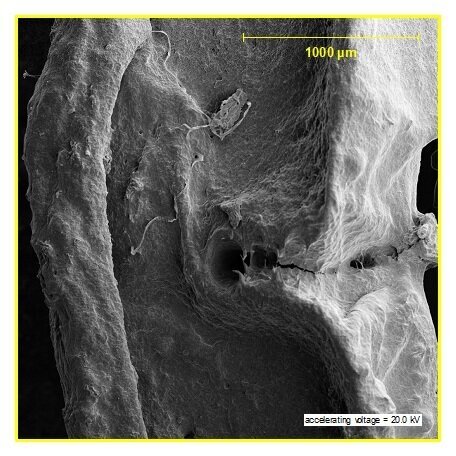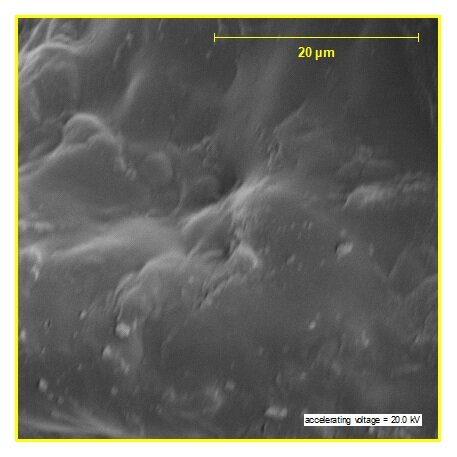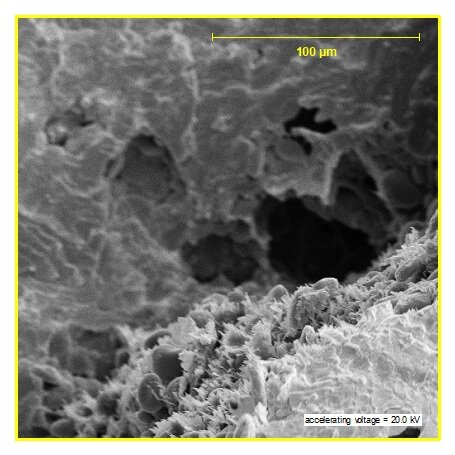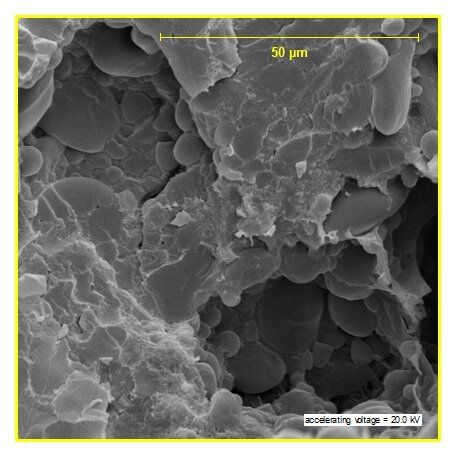
Abstract
Morphing structures are often engineered with stresses introduced into a flat sheet by leveraging structural anisotropy or compositional heterogeneity. Here, we identify a simple and universal diffusion-based mechanism to enable a transient morphing effect in structures with parametric surface grooves, which can be realized with a single material and fabricated using low-cost manufacturing methods (e.g., stamping, molding, and casting). We demonstrate from quantitative experiments and multiphysics simulations that parametric surface grooving can induce temporary asynchronous swelling or deswelling and can transform flat objects into designed, three-dimensional shapes. By tuning the grooving pattern, we can achieve both zero (e.g., helices) and nonzero (e.g., saddles) Gaussian curvature geometries. This mechanism allows us to demonstrate approaches that could improve the efficiency of certain food manufacturing processes and facilitate the sustainable packaging of food, for instance, by creating morphing pasta that can be flat-packed to reduce the air space in the packaging.
Food is an overlooked yet growing field of HCI that democratizes the science and engineering of shape changing and self-folding materials. This project introduces parametric surface grooving as an effective method to morph a variety of materials ranging from flour-based food to elastomers. Here, we investigated how geometrical parameters of grooves can affect swelling ratio, as well as experimentally demonstrated and simulated the multi-stage morphing effect of such structures. This mechanism can be applied to food design and production, and expand the library of 'expansion' of soft materials.
I collaborated with designers and makers in this project. My role is to find alternative materials that justify the generality of our theory, characterize the microstructure of the pasta dough with which we started this project.
For a full description, check out the project page from Morphing Matter Lab.




Bibtex
@article{tao2021morphing,
title={Morphing pasta and beyond},
author={Tao, Ye and Lee, Yi-Chin and Liu, Haolin and Zhang, Xiaoxiao and Cui, Jianxun and Mondoa, Catherine and Babaei, Mahnoush and Santillan, Jasio and Wang, Guanyun and Luo, Danli and others},
journal={Science Advances},
volume={7},
number={19},
pages={eabf4098},
year={2021},
publisher={American Association for the Advancement of Science}
}